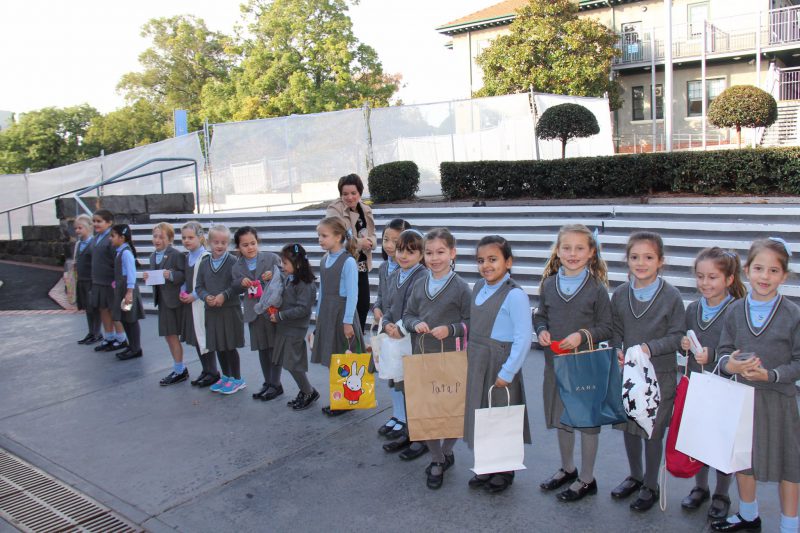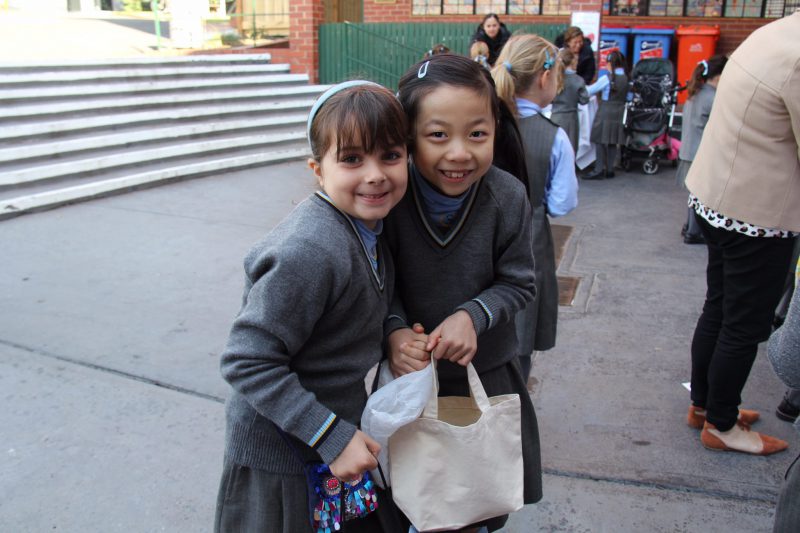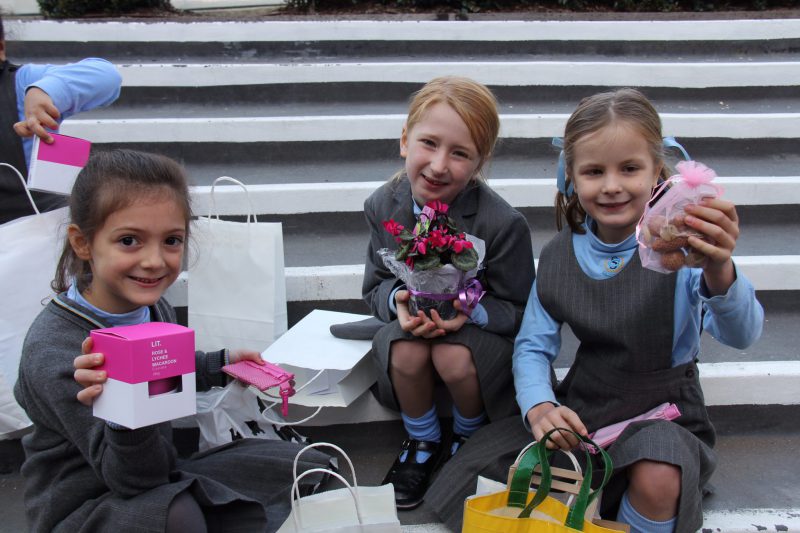Barbreck News

A focus on Manners
The importance of manners across all age groups is widely recognised and we are very proud that St Catherine’s students are often acknowledged for their impeccable manners and good demeanour by members of the public. We consistently receive positive comments during and after excursions, special events and school camps from others remarking upon the polite and respectful manner with which our girls conduct themselves.
A focus on manners is constantly an emphasis in the Barbreck classrooms, playground and in general. In particular, we focus on demeanour, making eye contact, using people’s names when responding, sound listening and conversational skill building. Courteous replies to questions are also warmly endorsed and encouraged.
When the list is contemplated, there is much to learn and remember. Providing helpful reminders and giving positive reinforcement when good manners are observed by adults is very important and helps consolidate growth in this area.
We thank parents and family members for working with educators on this journey, and for understanding the importance for your girls to develop a polite, respectful manner towards others as well as understanding the need for self-respect.
From a book entitled Why Manners Matter, written by psychologist Lucinda Holdforth, the following quote is offered for contemplation.
“Manners are a civil mode of human interaction. They matter because they represent an optimal means to preserve our own dignity and the dignity of others”.
Mother’s Day Stall
The photos below reflect the pleasure and appreciation observed last week, when our young shoppers took the time to choose a gift for someone special in their lives. The Parents’ and Friends’ Association Mother’s Day Stall, led by Ms Amanda Thompson and many wonderful helpers, is to be applauded once again. The stall is an immensely popular annual event and it is lovely to see the girls gain such joy being able to choose something themselves for their mother or special friend.
Bags and Key Rings!
The girls love decorations and colourful items and so do we. However, parents to note that each student is asked to only have one tag on each school bag. Some school bags currently have more bag tags than actual items in the bag!
Mathematics at home
You might not even be aware of all the different times throughout the day that, as parents, you are incidentally helping your child to learn more about mathematics. Parents have some of the greatest opportunities to make mathematics real; allowing children to apply the skills and knowledge, they are learning in the classroom in real life contexts.
We use mathematics every day of our lives; whether it be as simple as reading the time, deciding on our footy tipping choices or estimating how much time we need to get to school on time in the morning. We need to understand mathematics in many different ways and be able to apply our understanding to everyday contexts. We want our children to be comfortable and confident with mathematical concepts; easily, seamlessly and unconsciously drawing on what they have learnt to solve everyday problems, see patterns and relationships in the world around them and incorporating processes of questioning, reflecting, reasoning and proof.
Below are some simple ways that you can help your child with mathematics at home. Many of these you might already be doing incidentally or purposefully. I would like to encourage parents to look for mathematics all around them and embrace those opportunities. It may be while you are cooking, shopping, travelling, or even at the football.
- Play games together such as snakes and ladders, card games, board games and dice games.
- Use the language of mathematics as much as possible
- Ask your child to tell you about the mathematics they are learning at school
- Engage your child in everyday mathematics – adding or comparing scores of an AFL, measuring ingredients during cooking, adding up items in the supermarket
- Discuss and show your child the mathematics you use in your everyday life as an adult
- Encourage your child to try different strategies to solve a problem. If they don’t get it right the first time encourage them to think about it another way– focus on the process rather than just the answer
- Show your child that mathematics is all around you – discuss the GPS/map in the car, have them count the change in your purse/wallet, find patterns in the natural world and talk to them about time related concepts
- Reading books – there are many wonderful picture-story books for younger children that involve mathematics and learning through stories can be very powerful. Library staff, teachers or even your local bookstore can always help you with some ideas.
- Very importantly, remember your children often develop their own attitudes based on your attitudes so be sure to present a positive mindset around mathematics.
- Allow your child time to stop and think
By tapping into these opportunities, you are helping your child to further their mathematics understanding, but most importantly demonstrating the real life purpose and application of mathematics, and showing them it can fun.
STEM at St Catherine’s Junior School
St Catherine’s Junior School offers an extensive and broad range of opportunities for all students, and in my short time at St Catherine’s, it has been wonderful to see many of these in action.
As well as core classroom programs which focus on building strong foundations in literacy and numeracy and subject specific knowledge and understanding, we are also committed to ensuring students are provided with the opportunity to make connections between the different curriculum areas, linking learning and transferring their understanding to new contexts. One way in which we do this is through our STEM programs.
STEM education is an interdisciplinary approach to learning which integrates the study of science, technology, engineering and mathematics into cohesive learning experiences. It offers an integrated approach that challenges students to draw connections between their learning and the real world. In doing so, it equips students with critical thinking, problem solving, and creativity and communication skills, necessary for future success in a wide range of areas.
STEM in the Junior School is facilitated through sequential before school programs offered at every Year level, and through a newly implemented STEM specialist program led by Alyssa Flint in Years 3 and 4. It has been wonderful to see the girls involved in the morning STEM program, filling the room with an air of eagerness, curiosity and excitement, and a strong level of engagement as they explore, build and learn through the classroom programs. Here are just a few images capturing some STEM moments.
-
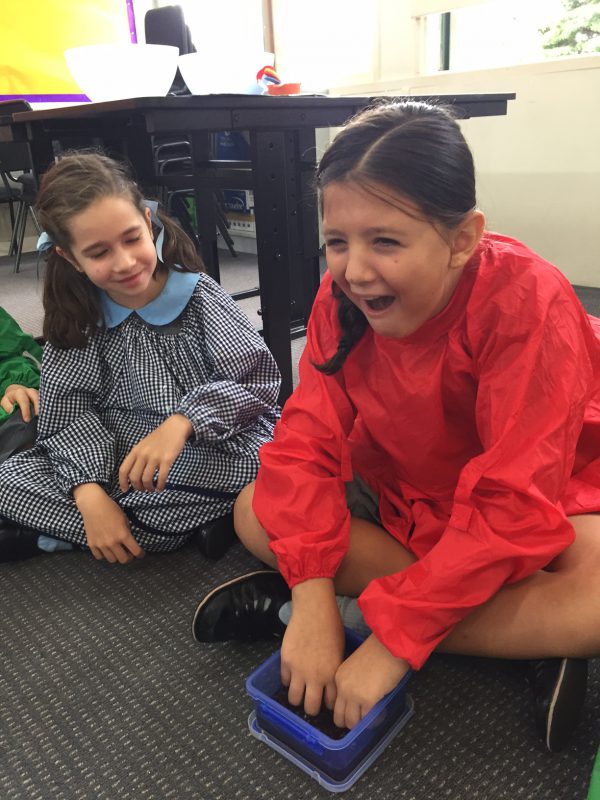
Giselle imaging what her brain might feel like in a sensory activity
-
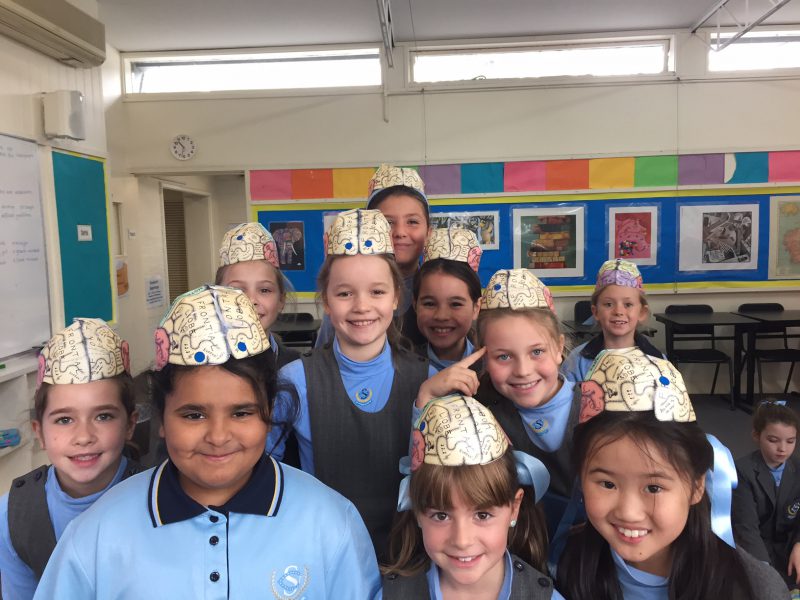
-
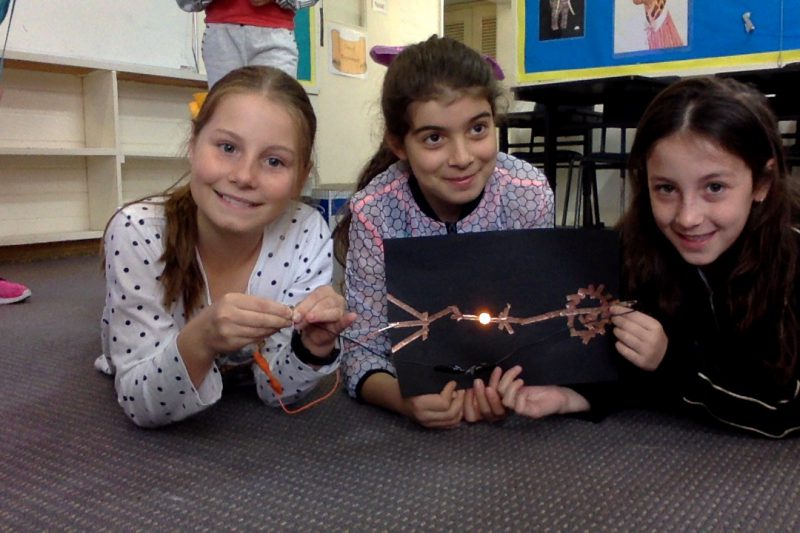
-
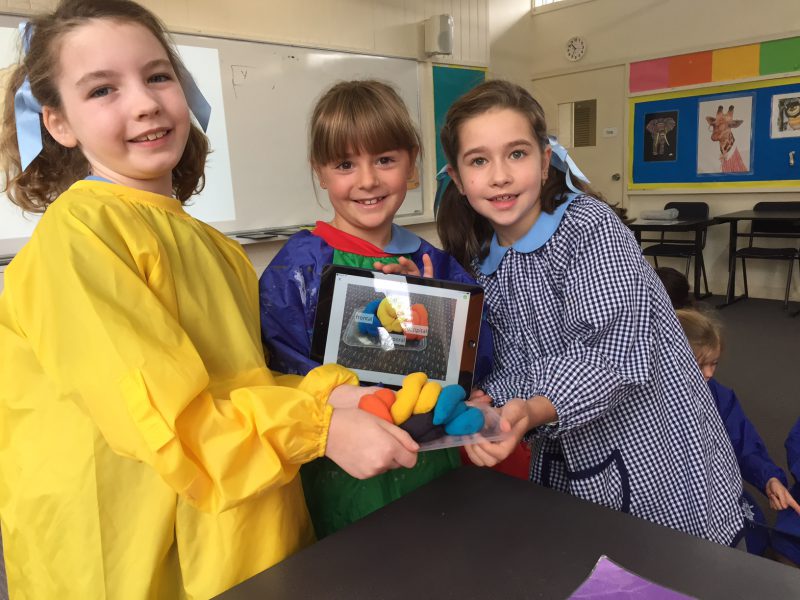
-
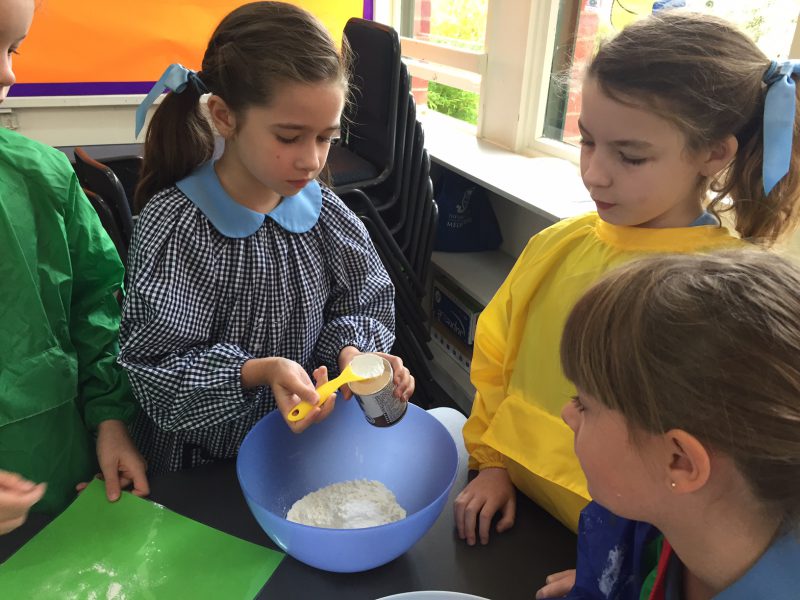
Integration of maths, science and art: Alessandra measuring ingredients to make playdough, to create a replica of a brain.


